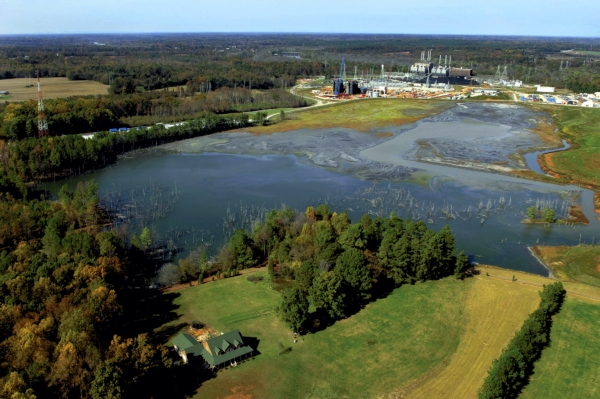Editorial: Next decade will be about coal ash action in Dukeville area
Published 12:00 am Tuesday, February 11, 2020

- A November 2010 aerial photograph of the first holding basin that was being used to hold the coal ash from the coal-fired Buck Steam plant seen in the background. JON C. LAKEY / SALISBURY POST
In Rowan County, most major concerns ended years ago about water contamination and how Duke Energy would handle the tons of coal ash stored in the Dukeville area.
A court settlement addressed cleanup concerns — requiring full excavation and/or recycling. State legislation required Duke to provide clean water to local residents, which took the form of a water line in Rowan County.
But much of what Rowan residents have seen in the news or in their mailbox, if they live close enough to the coal ash ponds, only involves planning for the future rather than action. If the previous decade has been one focused on water quality and closure plans, the next will be one in which the company will carry out what it has planned with state regulators.
At the end of December, Duke Energy submitted a closure plan for Buck Steam Station and it spells out details of what will be a massive operation. A judge approved a final agreement between Duke Energy and state regulators last week.
Importantly, the company says a recycling unit should be ready to operate in the spring. The unit will reduce the amount of unburnt carbon in the ash and transform it into a product that can be used in the concrete industry — think road construction or airport runways.
The total amount of coal ash to be excavated is 6.7 million tons or the weight of tens of millions of average-weight American men and women. The massive total is split between three basins and five total impoundment structures that are unlined and up to 70 feet deep.
The total will be excavated and moved to a lined landfill or recycled by 2029, according closure plans. The company says its recycling unit can handle 4 million tons of coal ash if given 10 years for processing, leaving an estimated 2.68 million tons “which would potentially require handling by another process.”
All of that work and Chewy.com’s fulfillment center on Long Ferry Road should prompt Dukeville-area residents to expect increased traffic on Long Ferry Road.
One year later, in the fourth quarter of 2030, Duke Energy says it will complete restoration of the coal ash ponds and “restore much of the historical natural valley channels.” Not clear yet is what the company plans to do with that restored land, but it could build goodwill among Dukeville-area residents by soliciting their recommendations about what to do next, especially if the land won’t be needed for power generation.

